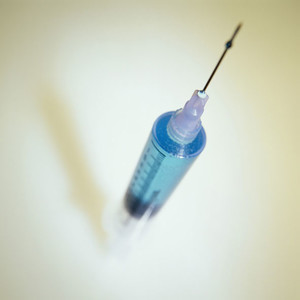FDA and representatives from the drug industry negotiating a user fee for biosimilars have tentatively set performance goals and biosimilar user fee levels, creating a separate review programme for biosimilars.
Biosimilar user fee levels and performance goals for the FDA
Biosimilars/News
|
Posted 07/10/2011
 0
Post your comment
0
Post your comment

On 9 May 2011 FDA proposed a user fee programme that would see drugmakers seeking approval to market biosimilars in the US initially paying fees similar to those required of originator biological drug developers. The proposal was open to comments from the public until 9 June 2011 [1].
Biosimilar user fee levels
Biosimilar user fees have been the subject of much discussion between FDA and the drug industry over the past months. The long awaited FDA practical guidance on the biosimilars pathway is expected to include several opportunities for regulatory input, but this will come at a cost to biosimilar manufacturers.
A tentative agreement commits the FDA to hold up to five meetings with biosimilar applicants prior to submission. The first meeting would be free, with subsequent meetings, requiring drugmakers to pay a biosimilar product development fee, set at 10% of each year’s prescription drug marketing application fee. FDA is still working to define the fee structure, however, it is expected that these fees would then be subtracted from the biosimilar marketing application fee.
Biosimilar applicants are also expected not to be required to meet with FDA at specific times or for specific reasons during the development phase, allowing them more flexibility with agency involvement early in the process.
The proposed draft language includes a spending trigger condition, proposed by the brand-name drug industry, that must be satisfied in order for FDA to be able to collect and spend biosimilar user fees. The condition specifies that FDA may collect and spend user fees only if FDA also spends at least US$20 million per year in federal funds. A trigger already exists as part of the Prescription Drug User Fee Act and the proposal would create a parallel structure for biosimilars.
This trigger condition would mean that FDA would have to receive about 11 times more in dedicated government funding for biosimilar application reviews than in 2011 in order to collect user fees. Some believe, however, in the current climate of deficit cuts, that this budget requirement may lead to Congress blocking the whole biosimilars pathway.
Performance Goals
FDA has revised its performance goals to include special protocol assessments and meetings to address stalled biosimilar product development programmes.
The tentative agreement sets a goal for FDA to review 70% of biosimilar applications within 10 months by 2013, increasing to 90% by 2017.
After stakeholders ratify the agreement, FDA must submit its proposal for creating biosimilar user fees to Congress by 15 January 2012. Congress is expected to enact a biosimilar user fee bill in 2012 along with the Prescription Drug User Fee Act reauthorisation.
In Europe, EMA already works with a system of biosimilar fees. Biosimilar fees are around 64% of the fees for new biologicals, reflecting the lower workload. Prior to filing, no fees other than the optional Scientific Advice Fee are charged. This fee is identical for all products (chemical, biological, etc.). To the knowledge of European Generic medicines Association, EMA has completed 100% of its reviews of biosimilars within the target timeline of 210 days excluding clock stops [2].
References
1. GaBI Online - Generics and Biosimilars Initiative. FDA and biosimilars: process update [www.gabionline.net]. Mol, Belgium: Pro Pharma Communications International; [cited 2011 October 7]. Available from: www.gabionline.net/Biosimilars/General/FDA-and-biosimilars-process-update
2. GaBI Online - Generics and Biosimilars Initiative. Does industry support biosimilar user fees in the US? [www.gabionline.net]. Mol, Belgium: Pro Pharma Communications International; [cited 2011 October 7]. Available from: www.gabionline.net/Biosimilars/News/Does-industry-support-biosimilar-user-fees-in-the-US
Source: BioCentury, FDA, PharmaManufacturing
Research
Reaching ESG goals in pharmaceutical development
What is the future for the US biosimilar interchangeability designation
General
Samsung Bioepis wins Pyzchiva case; Regeneron patent rulings threaten foreign biosimilars
Chinese biosimilars go global: growth, partnerships, and challenges
Most viewed articles
The best selling biotechnology drugs of 2008: the next biosimilars targets
Global biosimilars guideline development – EGA’s perspective
Related content
EMA recommends approval for teriparatide biosimilar Zandoriah
FDA approves third interchangeable ranibizumab biosimilar Nufymco
FDA approves Poherdy (first interchangeable pertuzumab) and Armlupeg (pegfilgrastim) biosimilars
EMA recommends approval for insulin glargine biosimilar Ondibta and denosumab biosimilar Osqay
FDA approves third interchangeable ranibizumab biosimilar Nufymco

Biosimilars/News Posted 09/02/2026
FDA approves Poherdy (first interchangeable pertuzumab) and Armlupeg (pegfilgrastim) biosimilars

Biosimilars/News Posted 27/01/2026
EMA recommends approval for insulin glargine biosimilar Ondibta and denosumab biosimilar Osqay

Biosimilars/News Posted 16/01/2026
The best selling biotechnology drugs of 2008: the next biosimilars targets







Post your comment